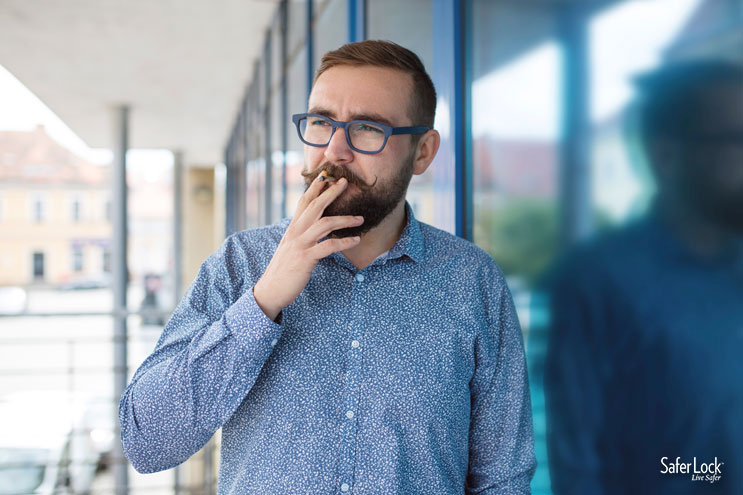Mounting stories about parents losing custody of their children for medical cannabis use are leaving pot-smoking parents outraged, and wondering if they could be next. Among the outpouring of frustration comes another question: why is it ok for parents to drink alcohol, but not smoke marijuana… even in states where it is legal?
Marijuana vs Alcohol in Child Welfare Issues: What the Law Says
Is parental drug use, including legal medical cannabis use and legal alcohol use, a form of child endangerment? The Child Welfare Information Gateway, a service of the U.S. Department of Health and Human Services’ Children’s Bureau, states that approximately 47 states specific laws on the books that address the issue of parental substance abuse and child safety.
Parents should be aware: many state laws include a provision that using a “substance that impairs the caregiver’s ability to adequately care for a child” is considered child abuse or neglect.
Here are some of the states that specifically address child welfare as it pertains to alcohol use, marijuana use, or an impaired caregiver:
- Alabama: Knowingly allowing a child to have contact with drug paraphernalia is a felony crime of child endangerment. That includes “objects used, intended for use, or designed for use in ingesting, inhaling, or otherwise introducing marijuana, tetrahydro cannabinols, … hashish, or hashish oil into the human body.”
- Alaska: An act of criminal child endangerment is being impaired by an intoxicant, whether or not prescribed to them, while caring for a child under the age of 10 if there is not third person present who is not intoxicated to care for the child.
- Arkansas: Child abuse includes any person legally responsible for the child’s welfare who permits a child to inhale (second-hand smoke) a substance not prescribed by a physician that has the capacity to alter the mood of the child, including marijuana. AK also states that giving or permitting a child to consume alcohol, or purposely administering an inappropriate dose of over-the-counter medications are also considered child abuse.
- California: Any factors that are present that indicate a risk to a child, including a parent whose substance abuse makes them unable to provide for the child, can be reported to a county welfare or probation department (but not a law enforcement agency).
- Iowa: A child in need of assistance means any child whose parent’s or guardian’s drug or alcohol abuse results in inadequate care for the child.
- Kentucky: A child whose parent, guardian, or person exercising supervision, is rendered incapable of caring for the immediate or ongoing needs of the child due to alcohol and other drug abuse is considered abused or neglected.
- Maryland: A report of suspected neglect related to drug abuse can lead to an “offer of admission” into a drug treatment program for a mother. If she refuses to accept treatment or does not complete the program, the local department may initiate proceedings to terminate her parental rights.
- New York: A child whose parent or other person legally responsible for his/her care who is impaired by the misuse of drugs or alcoholic beverages to the extent that he/she “loses self-control of his/ her actions” is considered a neglected child.
- Ohio: A child is considered abused if they are allowed to be on the same property or within 100 feet of a property of any act that violates a law (§ 2925.04) prohibiting the cultivation of marijuana or the manufacture of a controlled substance.
- Rhode Island: A child whose physical or mental health or welfare is threatened or harmed when a parent or guardian uses a drug, drugs, or alcohol to the extent that the adult loses their ability to properly care for the child is considered and abused and/ or neglected child.
- Virgin Islands: Child neglect is allowing a child to be in a situation that is dangerous to their health or welfare, including leaving a child in the care of any person known to use, possess, or sell illegal drugs, or abuse alcohol.
- West Virginia: Any parent, guardian, or custodian whose abuse of alcohol, drugs, or controlled substances has impaired their parenting skills is considered an emergency situation where the welfare of the child is in imminent danger.
Marijuana vs Alcohol in Child Custody Issues: What the Lawyers Say
No one better understands the legal implication of child custody issues and medical marijuana use than the lawyers who see these issues daily.
“The overriding standard in custody cases is to determine the best interest of the child by considering all relevant factors,” says Randi L. Rubin, a family law attorney, in an article for The Legal Intelligencer. Rubin’s advice to pot-smoking parents is to consider whether their use and possession of marijuana will impact the safety and welfare of a child, or in some way create instability for any children in the home.
Rubin compares medical marijuana use to alcohol use, particularly in one facet. “Family courts seem to be leaning toward handling the decriminalization of marijuana similar to the way they treat alcohol consumption. Courts will continue to take a hard line against parents who drive a motor vehicle under the influence of marijuana and with children in the car, much like they do with parents who drive with their children under the influence of alcohol.”
Smoking pot at home during a non-custodial time probably won’t impact custodial rights, however Rubin does think a legal guardian who gets high during custodial time is jeopardizing their custodial rights, regardless of the decriminalization of marijuana.
In California, where medical cannabis use is legal within certain guidelines, Beck Law P.C., a medical marijuana attorney, advises patients to remember that their legal right to medical cannabis is “limited just as any other right, so as not to cause harm or injury to another.” Just like it is legal to consume alcohol in the home, the government can still lawfully remove children from their legal guardians if they have been unduly exposed to alcohol abuse. Beck Law states that the effects of secondhand marijuana smoke to minors may very well be grounds for removing children from their guardians.
“It is legal for adults to consume alcohol and to have alcohol present in their home. However, the government may lawfully remove children from their legal guardians, should a court determine that the children have been unduly exposed to alcohol abuse or a threat or injury as a result of neglect reckless conduct,” says Nancy J. Bickford, Certified Family Law Specialist in California. “The same principle goes for the use of medical marijuana. If the Court determines that a parent’s use of medical marijuana affects their ability to care for the children or put the children in harm’s way, the court could take the children away from that parent.” Even more frightening is Bickford’s admonition for the spouse of a pot-smoking parent. “Child Protective Services could become involved and your children could be taken even if you are not the parent using marijuana or the use of marijuana is legal under the Compassionate Use Act.”
When it comes to medical cannabis use, as well as the use of any other substance, common sense is key if you want to protect your children from child welfare or custody issues.
Securely lock up any medications that you have in your home, including medical (or legal recreational) cannabis. Keep your medications stored out of reach and out of sight of children. Don’t medicate or become impaired when you are caring for your children, or in front of children. Never drive a child in a car if you are intoxicated or medicated. Never use alcohol, medical marijuana, or any other substances in a way that would put your kids at risk because you are too far under the influence to care for them. Just because you have the legal right to use alcohol or medicate with marijuana doesn’t mean that your children are protected from child welfare and custody laws while you do so.
Want to know more about protecting your children from child custody issues due to medical cannabis use?
See the rest of our series, including:




